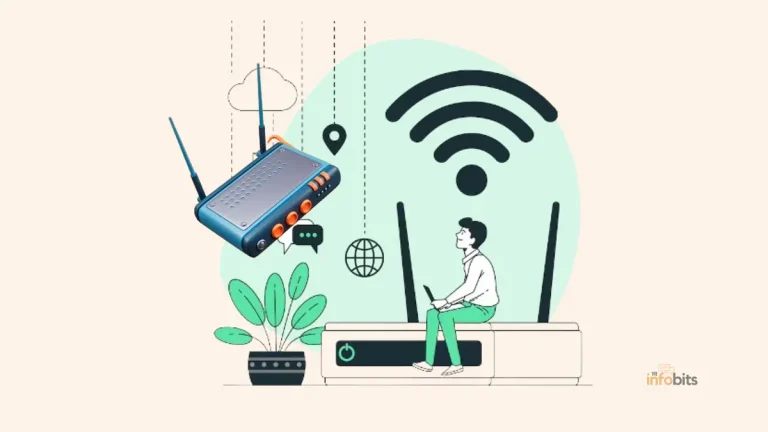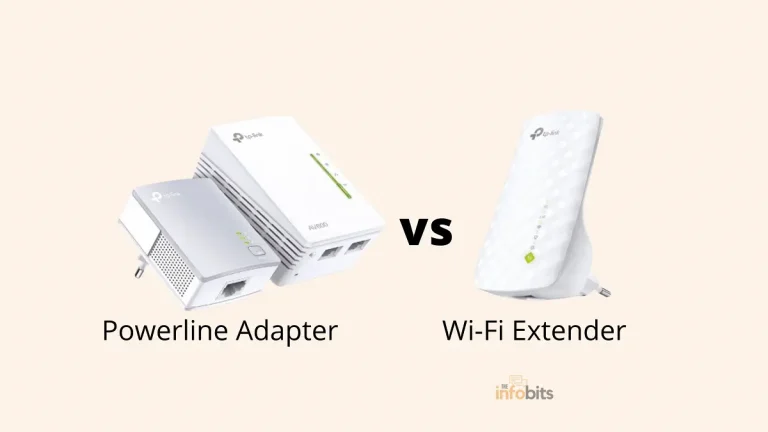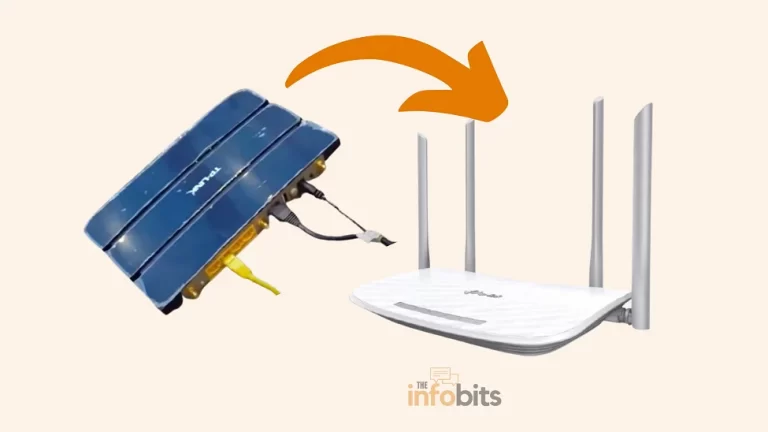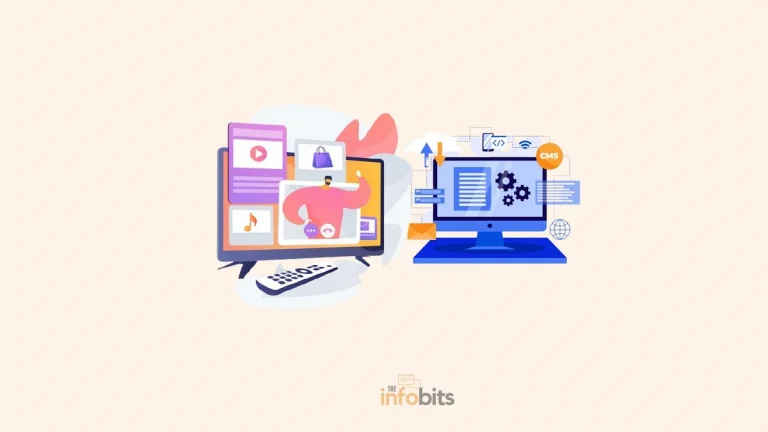Is 5G Home Internet Good for Gaming? A Comprehensive Guide
The introduction of 5G technology signified an age of innovation in internet communication, promising unparalleled speed, reduced latency, and improved performance.
Many gamers are interested in knowing whether 5G home internet can improve their gaming sessions, given the development of online gaming and the rising desire for flawless gameplay experiences.
This detailed guide will go into the realm of 5G home internet and its implications for the gaming community. We’ll go over the benefits, considerations, and recommendations for improving your gaming experience with 5G Home Internet.
So, let us start by answering the main question: Is 5G home internet suitable for gaming?
Based on our preliminary research and experience with 5G Internet, it is clear that this technology has enormous potential benefits for gamers.
5G may provide a completely immersive and continuous gaming experience due to its improved speed, lower latency, and expanded capacity.
As with every technology, 5G Internet has its drawbacks. As a result, it is critical to analyze the limitations and potential downsides of this latest wireless technology.
Individual circumstances and priorities will ultimately determine whether to use 5G home internet or regular broadband.
Before making a selection, gamers should properly examine their gaming demands and consider aspects like network coverage, cost, and performance in their area.
As 5G technology evolves and expands, it offers the possibility of altering the gaming environment; thus, it is important to understand how 5G Internet is utilized in gaming.
In this post, we hope to provide gamers with a clear picture of whether 5G home internet is a viable alternative for their gaming needs.
What is 5G Home Internet?
Before we get into the gaming side, let’s first define 5G home internet.
5G, which stands for the fifth generation, is the most recent wireless technology standard. When compared to earlier generations, it provides quicker speeds, lower latency, and greater dependability.
Despite its association with mobile networks, 5G may also be utilized to provide residential internet connections.
5G home internet uses high-frequency bands, allowing for far faster download and upload speeds than typical broadband connections.
5G home internet, with predicted speeds of up to 1 Gbps, has the potential to alter the gaming environment.
Advantages of 5G Home Internet for Gaming
Now that we’ve covered the fundamentals of 5G home internet, let’s look at the benefits it has for gamers.
Lightning-fast speeds: The outstanding speed of 5G home internet is one of its most significant features 5G eliminates the problems of latency and buffering that can impede your gaming experience with near-instantaneous downloads, updates, and better gameplay.
Low Latency: Latency, or the time elapsed between when a command is sent and executed, is an important component in gaming.
When compared to typical broadband connections, 5G Home Internet has much lower latency, resulting in more responsive gaming, especially in online multiplayer games where split-second reflexes can equal success or failure.
T-Mobile estimates its 5G wireless latency to be between 18 and 41 milliseconds, while Verizon expects it to be less than 31 milliseconds.
This correlates to the results of our T-Mobile 5G Home Internet test, which found an average latency of roughly 21 ms.
Even if cable and fiber internet offer lower latency estimates, the difference is insignificant.
Multi-Device Connectivity: 5G Home Internet enables continuous connectivity across many devices.
You can play on your console while your friends or roommates play online on their smartphones or PCs, all without sacrificing performance.
The high bandwidth of 5G offers a seamless and uninterrupted gaming experience for everyone in your home.
Enhanced Streaming: Streaming gaming to platforms such as Twitch or YouTube becomes simple with 5G Home Internet.
The fast bandwidth and low latency allow for uninterrupted streaming of live events, making it simpler for gamers to demonstrate their abilities and connect with their audience.
Considerations for Choosing 5G Internet for Gaming
While the benefits of 5G home internet for gaming are obvious, there are a few aspects to consider before making the switch to this technology.
Coverage: Because 5G technology is still being deployed, coverage may be restricted in some places.
Before purchasing a 5G home Internet package, be sure it is available in your area. Check with local service providers to see if 5G coverage is available and of high quality.
Data Caps and Pricing: Some 5G home Internet services may have data limits or use restrictions. To minimize surprises, be sure you understand the terms of your plan.
Compare pricing structures among providers to ensure you’re receiving the most value for your gaming requirements.
Compatible Devices: Not all devices are 5G-ready. Check to see if your game console, PC, or other gadgets support a 5G connection before enrolling in 5G Home Internet.
Upgrading your gadgets, if necessary, will guarantee that you can fully enjoy the increased gaming experience that 5G provides.
Stability and Reliability: While 5G home Internet offers the potential for outstanding speeds and performance, it is critical to examine the network’s stability and dependability.
Examine the reputation of service providers in your region and read customer reviews to ensure you select a trustworthy provider that delivers consistent results.
Related: Best DNS Servers for Gaming
How 5G Internet Enhances the Gaming Experience?
Now that you’re aware of the benefits and considerations, let’s dive deeper into how 5G home internet improves the gaming experience.
Faster Downloads and Updates: When compared to previous-generation wireless internet connections, game downloads and upgrades take much less time with 5G.
Say goodbye to long waits and welcome instant access to the most recent games or updates. You’ll be up and running and ready to conquer new virtual worlds in no time.
Seamless Online Multiplayer: Have you ever had latency or disconnects when playing hard online multiplayer games?
5G home internet decreases latency, resulting in better gameplay and fewer irritating interruptions.
Take advantage of seamless communication and collaboration with your colleagues to gain a competitive advantage.
Virtual Reality (VR) Gaming: Virtual reality gaming is gaining popularity because it provides immersive experiences that transport gamers into virtual worlds.
The fast speeds and low latency of 5G home internet are required for an excellent VR gaming experience.
With 5G, you may explore fascinating parts of the gaming world, play realistic games, and immerse yourself in the gaming realm.
Cloud Gaming: Cloud gaming, also known as on-demand gaming, allows you to play the most recent and demanding games on low-end devices.
The game is processed by the cloud server while you play, eliminating the need for pricey gaming gear.
The fast speeds and low latency of 5G Home Internet enable a seamless and comfortable cloud gaming experience, allowing you to access a wide library of games without the need for a powerful gaming setup.
Streaming and Sharing: Whether you prefer streaming your games to an audience or sharing your gaming highlights with colleagues, 5G Home Internet streamlines these operations.
The fast upload rates provided by 5G enable uninterrupted streaming with no delays or pauses. Share your accomplishments, delight your audience, and easily interact with other players.
Tips for Optimizing 5G Home Internet for Gaming
Consider using the following recommendations to get the most out of your 5G home Internet connection:
Optimize Your Router Placement: Place your router in the center of your home to provide even coverage and prevent signal loss.
Avoid obstacles such as walls or huge items that might interfere with the transmission. Experiment with several locations to determine the best location for excellent connectivity.
Secure Your Network: Set up a strong password for your Wi-Fi network to protect your gaming experience and personal information.
Ensure that unauthorized users cannot get access to your network, perhaps generating slowdowns or security threats.
Quality of Service (QoS) Settings: Examine the Quality of Service settings on your router. QoS allows you to prioritize gaming traffic, ensuring that your gaming sessions receive the most bandwidth and have the least latency, even if other devices in your home are using the network.
Update Firmware: Maintain the firmware on your router. Manufacturers offer updates regularly to enhance performance, security, and compatibility. Checking for firmware upgrades regularly guarantees that you are taking advantage of the most recent optimizations and features.
Limit Background Processes: Close any background programs or processes that are running on your gaming device. These operations can eat up significant bandwidth and potentially disrupt your gaming experience. You can improve your gaming connection by freeing up system resources.
Verify Device Settings: Check the network settings on your gaming device to verify they are suited for online gaming. If appropriate, enable options such as port forwarding to improve connectivity and decrease the chance of connection problems.
Test and Monitor Performance: Test your internet connection regularly using tools or websites developed for this purpose. Monitor critical statistics such as ping, upload speed, and download speed to verify your 5G home internet is performing properly.
Potential Challenges of 5G Home Internet for Gaming
While 5G home internet has various advantages, it is vital to be aware of potential drawbacks.
Coverage Limitations: As previously stated, 5G coverage may still be restricted in some places. If you live in an area with poor coverage, you may have difficulty obtaining 5G home internet. It’s critical to verify with service providers to see if 5G is available in your location.
Network Congestion: 5G networks may face congestion during high usage times, affecting your gaming experience. Although 5G promises better speeds, network capacity and the number of people connecting at the same time must be considered.
Infrastructure Development: To achieve coverage, 5G Home Internet relies on a large infrastructure that includes towers and antennas. This infrastructure may still be under construction in certain regions.
If you’re an early adopter, make sure your area has the infrastructure to enable 5G home internet.
Higher Costs: 5G home Internet services may be more expensive than standard broadband solutions. It is critical to assess your budget and consider whether the benefits of 5G home internet for gaming justify the potential increase in spending.
Comparing 5G Home Internet with Traditional Broadband for Gaming
Traditional broadband has been the go-to choice for gamers for years, and for good reason. It provides stable and dependable speeds, as well as a diverse selection of providers and competitive price alternatives.
However, when compared to 5G, it may equal the lightning-fast speeds and responsiveness that traditional cable or fiber internet promises.
Key Differences between 5G and Traditional Broadband
The primary distinction between 5G and conventional broadband is found in the technology itself.
5G uses wireless communications to provide greater speeds and lower latency.
Traditional broadband, on the other hand, is dependent on physical infrastructure such as cables or fiber optic lines.
Choosing the Right Option for Your Gaming Needs
When it comes down to it, the best option for your gaming requirements is determined by a variety of criteria, including availability, affordability, and the area you are residing in.
If you’re a hardcore gamer searching for the fastest speeds and responsiveness, 5G home internet could be worth looking into. However, if you want dependability and extensive availability, conventional broadband may still be the safest alternative.
To put it simply, 5G is really fast. It offers a peak download speed of over 1 Gbps and an average download speed of 186 Mbps.
A typical fiber broadband connection will have a peak download speed of 1 Gbps and an average download speed of roughly 100 Mbps.
This means that both 5G and fiber internet connections are much faster than the suggested minimum speed for online gaming of 35 Mbps, resulting in a smoother experience.
However, in certain regions, 5G performs somewhat worse than broadband. For example, it has an average latency of 30 ms, compared to only 15 ms for fiber broadband.
However, 5G is just getting better in this area, and it appears that this latency will continue to fall.
Conclusion: Is 5G Internet Good for Gaming?
5G home internet can completely transform the gaming experience. Its lightning-fast bandwidth, low latency, and multi-device connection provide a solid basis for immersive and competitive gaming.
You may improve your gaming experience with 5G home internet by following the instructions in this article and taking into account the essential elements.
You should be aware that 5G home internet is less than optimal for gaming without enough network coverage and a dependable service provider.
However, depending on the games you play, it may also be a feasible alternative to standard broadband internet in this situation. Although 5G is a significant improvement over 4G LTE, it still falls short in several cases when compared to cable and fiber-based choices.
Remember to verify coverage in your location, compare price choices, and confirm device compatibility. Fast downloads, fluid online multiplayer matches, and realistic VR or cloud gaming experiences are all possible with 5G Home Internet.
Frequently Asked Questions
Is a 5G network good for gaming?
Gamers want a fast, stable, and responsive internet connection for a decent experience, and 5G internet can provide these things comfortably. As a result, the 5G network is suitable for gaming.
Is 5G better than fiber for gaming?
We can’t claim that 5G internet is superior to fiber internet. Fiber-optic internet provides far more bandwidth than a 5G network. As a result, customers may download files quickly and stream video without interruption. A 5G connection provides increased capacity for downloading data at high-speed rates, up to 1 gigabit per second. Fiber optic cables, unlike 5G networks, cannot offer these speeds wirelessly. To provide wireless connectivity with fiber, you will need a reliable high-speed router. Even so, Wi-Fi connections are typically limited to a narrow region.
Please share this article with your friends and relatives if you find it useful.
We also ask that you bookmark this page for future reference, as we are constantly updating our articles with new information.
Sign up for our free newsletter as well to receive fresh information immediately in your inbox and keep technically up to date.







